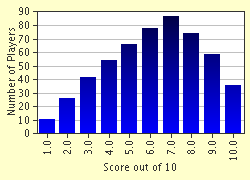Quiz Answer Key and Fun Facts
1. 'The Communist Manifesto' was one of the principal works of the modern world. Karl Marx was the primary author; who was his co-author?
2. Along the same theme, who was the author of 'Das Kapital'?
3. 'The Federalist Papers' were influential essays that were written during the revolutionary period in America. Who was NOT a main contributor to them?
4. This scientist-philosopher was highly controversial for his theories, as expressed in books such as 'Worlds in Collision'.
5. 'The Critique of Pure Reason' was considered a milestone in philosophical thought. Who wrote it?
6. Many writers known as 'muckrakers' exposed social evils. Which author was NOT one of them?
7. 'Candide' was a caustic lampoon of the notion that this was 'the best of all possible worlds'. Who wrote it?
8. It is perhaps a stretch to mention the 'Rosetta Stone' here: that was not significant for its content. Nevertheless, it was important because it provided a key to understanding languages. Who was primarily responsible for its interpretation and translation?
9. 'All Gaul is divided into three parts ...'
10. Many consider this man's work, 'Democracy in America', to be insightful and astute.
Source: Author
robert362
This quiz was reviewed by FunTrivia editor
looney_tunes before going online.
Any errors found in FunTrivia content are routinely corrected through our feedback system.


